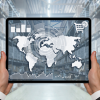News
Displaying Results 76 - 100 of 129
As supply chains within the garment and footwear sector are becoming increasingly complex, the need for transparency is more relevant than ever. Consumers, investors and shareholders are pressing for transparent business activities as well as the prevention and mitigation of risks in value chains,…
“There is a not a single major global challenge that does not involve water. This includes migration, conflict, disease, hunger, gender equity, population growth, urbanization, and climate change”. These were the words of UN-Water Chair, Mr. Gilbert Houngbo, as governments and key stakeholders from…
There is overwhelming evidence that we need robust management and traceability for the sustainable and circular supply and use of climate-critical raw materials. Calls are increasing for the production of raw materials to embrace circularity. Demand for batteries and other low carbon technologies…
Global trade has been transformed repeatedly throughout history, driven by new business processes and new policies. The new advances in digitalization now promise further transformation by making it faster, more transparent, reducing risks of red tape and corruption. With the increase in global…
Over 60 participants worldwide joined the online roundtable organized by the UN Digital transformation group for Europe and Central Asia (DTG4ECA) in the framework of the Regional Forum on Sustainable Development for the UNECE region. Established in May 2020, DTG4ECA group, co-chaired by UNECE and…
The second Environmental Performance Review (EPR) of Armenia kicks off in Yerevan under the lead of UNECE and carried out by a large, multidisciplinary team of international experts. This is the 56th EPR since the establishment of the UNECE EPR Programme over a quarter of a century ago. Armenia has…
Minerals such as lithium, cobalt, and copper are essential for digitalization, for renewable energy technologies, and for the further deployment of electric vehicles. Demand for these and other minerals – known as “critical raw materials” (CRMs) – is growing fast as governments and businesses act…
Strengthening value chains between Africa and the European Union (EU) is a priority objective for sustainable growth and decent jobs across the two continents. Recent market imbalances and disparities, involving supply chain disruptions and lack of attention to the social and environmental impacts…
A variety of European and African representatives from business, science, and government presented initiatives to raise awareness of universal sustainable resource management systems at the EU-Africa Business Forum. Experts called for further integration of European and African value chains through…
Today marks the holding of the first meeting of the Working Group on Tailings Safety and the Prevention of Accidental Water Pollution (IIWG) in Kazakhstan – the first comprehensive dialogue on these issues between all relevant stakeholders and national authorities in the country.
After being…
UNECE led a coalition of international experts to train raw material experts in sustainable resource management.
COP26 added much needed impetus towards climate action. Raw materials will be a pivotal part of the conversation in driving innovation in a regional circular economy including recycling…
The global economy enters 2022 with new challenges. Almost two years into the Covid-19 pandemic the digitalization of transport and trade data flows is on top of the economic agenda. In response, UNECE organized its 4th workshop on trade facilitation, Single Window, and data sharing for the Western…
If the world is to deliver on climate change and attain the 2030 Agenda for Sustainable Development objectives, we must optimize our endowments of natural resources. A resilient and sustainable supply of natural resources, including critical raw minerals, is essential for sustainable energy,…
Trade facilitation is a key priority for Kyrgyzstan and its trading community for participation in the global and regional trading system. Under the project on “Strengthening the capacity of the Kyrgyzstan National Trade Facilitation Council to implement the WTO Trade Facilitation Agreement”, UNECE…
Complex global value chains include production facilities scattered all over the world. Sometimes, they may also involve practices of illegitimate subcontracting and undeclared informal work. In fact, their complexity and opacity make it very hard to gain accurate information about how and where…
From the Sandoz chemical spill of 1986 in Schweizerhalle, Switzerland, to the rupture of a dam storing mine tailings containing cyanide in Baia Mare, Romania, 2000; and last year in Beirut, the explosion of ammonium nitrate stored in warehouse near residential areas, what these chemical and…
UNECE is leading a large and diverse group of international experts carrying out the 55th Environmental Performance Review (EPR) since the establishment of the UNECE EPR Programme, 25 years ago. Azerbaijan has requested UNECE to review its environmental performance for a third time. To provide the…
COP26 was a positive step forward in the fight against climate change, but as the UN Secretary General pointed out in his comments: “it is not enough. We must accelerate climate action to keep alive the goal of limiting the global temperature rise to 1.5 degrees.” The compromise deal reflects the…
As all eyes turn to Glasgow where world leaders have gathered at COP26 for crucial negotiations to cut greenhouse gas (GHG) emissions and limit global warming, UNECE experts highlight how improved transparency and traceability could be part of the solution. The private sector has a vital role to…
The Group of 7 nations (G7), six of which are UNECE member States (Canada, France, Germany, Italy, the UK and the US), took bold step towards reducing barriers to trade by agreeing on the principles to govern cross-border data use and digital trade. At their meeting in London on 22 October,…
This year, the UNECE region has seen devastating impacts of climate change and multiple natural disasters, such as the floods in Belgium, the Netherlands and Germany. Disasters caused by natural hazards, on the rise due to climate change, can also trigger technological accidents.
On today’s…
The progress of the 2030 Agenda for Sustainable development hinges on the availability of natural resources and a transition to sustainable means of their production and use. Minerals and petroleum provide the raw materials needed for the economy. While a low-carbon economy requires a wide variety …
Transboundary waters are a global common good crucial for human life, which require concerted management and protection. The ninth session of the Meeting of the Parties (MOP 9) to the Convention on the Protection and Use of Transboundary Watercourses and International Lakes (Water Convention) has…
The COVID-19 pandemic restrictions have brought the benefits of paperless trading to the forefront of attention. Many countries are considering issuing, accepting and exchanging electronic documents for paperless trading. Issues related to paperless trading are also at the core of World Trade…
Realization of the Sustainable Development Goals will require massive inputs of low-carbon energy, critical raw materials, and other natural resources, including land and water. These demands are aggravated by rapid urbanization of the world’s population, which stresses grid-based power,…


























